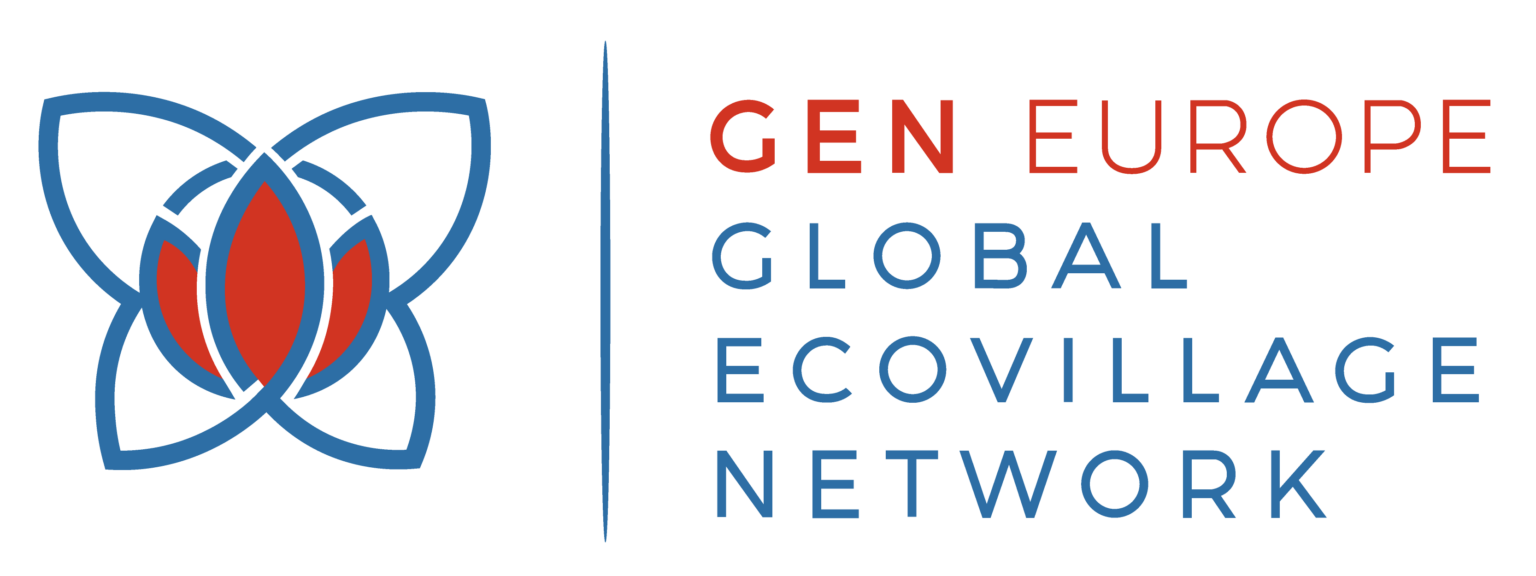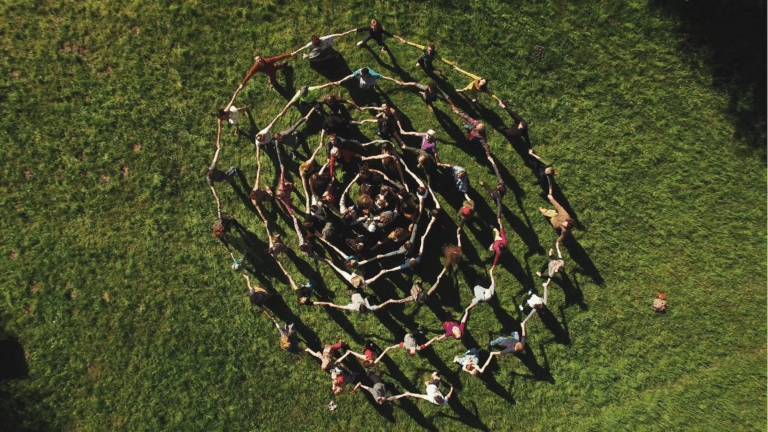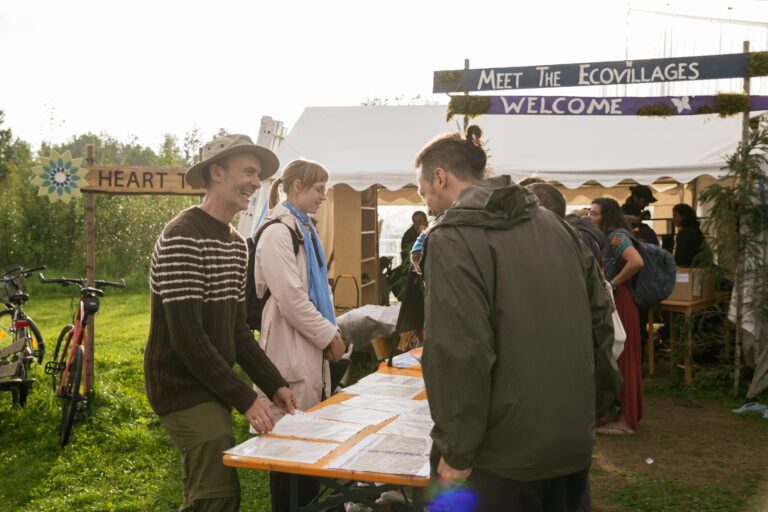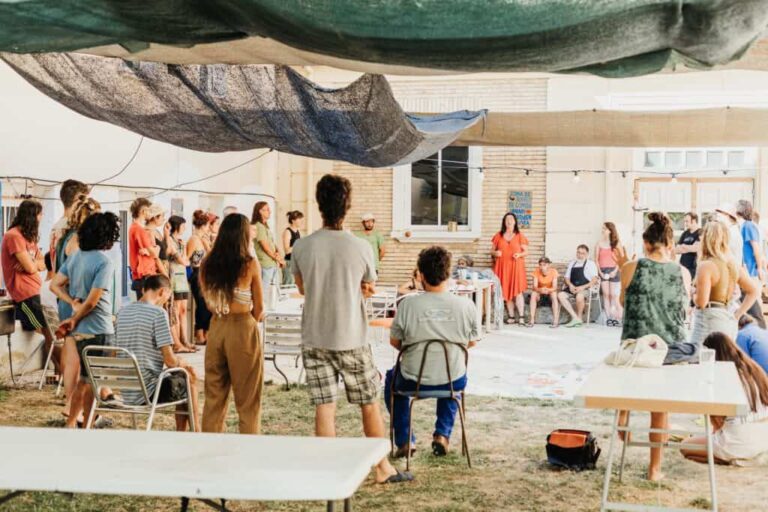The Role of Ecovillages in a New Digital Culture
When I joined the European Ecovillage Network as their new IT Manager back in 2017, I suspected it was not going to be a regular IT job, but I had no idea how radically different it would be. In some Ecovillages, such as Sieben Linden in Germany, residents consciously prohibit mobile phone signals within the village boundaries and they deliberately choose slow internet connections. Lakabe in Spain has agreed to remain an electromagnetic-free zone except during specific designated hours, due to health concerns. Meanwhile, other communities like Nature Community in Germany have deployed self-hosted networks with different open-source services for their members. These weren’t random tech choices, they were deliberate experiments in digital living that challenged many things I had learned about our relationship with technology.
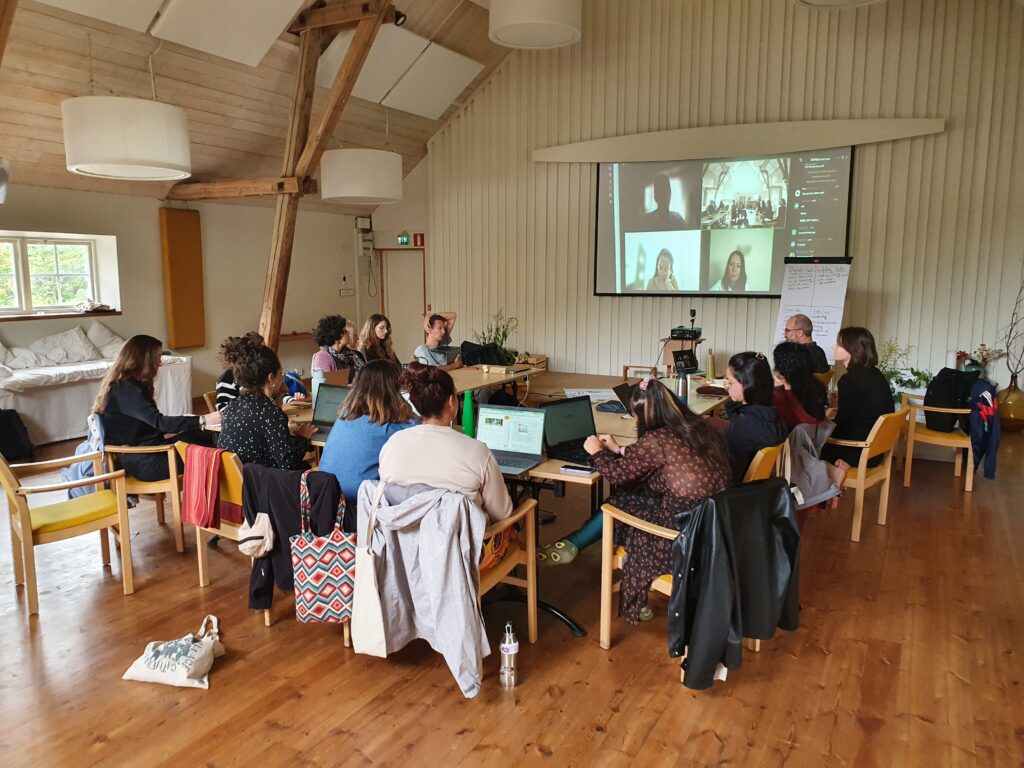
European Ecovillage Gathering 2024
What I discovered through working with these communities and living in one is that there is no single recipe for how Ecovillages decide to develop. I often like to describe them as living sustainability labs, places where people experiment with alternative approaches and show the world that other ways are possible. However, they do have a common denominator: there is a clear understanding that the mainstream approach cannot sustain our society in the long term.
Thirty years ago, the Global Ecovillage Network (GEN) emerged as a deliberate strategic response to what its founders saw as the destructive consequences of the dominant worldview. They envisioned a world of empowered citizens and communities, designing and implementing their own pathways to a sustainable/regenerative future, and building bridges of hope and international solidarity.
During all these years, GEN has been reaching out to the world about many of these alternative pathways, covering social, ecological, economic and cultural aspects in a holistic manner.
Ecovillages have honored the “eco” in their name by implementing permaculture, food forests, community supported agriculture, renewable energies, water management techniques, eco-building, etc. On the economic side, there are plenty examples of aiming for degrowth, local currencies, bartering and local exchange networks, time banks, gift economy and many more. With regards to the social aspect, they’ve developed consent-based decision systems (e.g. Sociocracy), facilitated meetings, non-violent communication, alternative education systems, … All of that while embracing a low impact lifestyle, fostering self-reflection and feedback culture, engaging in conscious art and celebration, spirituality, etc.
Yet while all these innovations have been widely communicated and celebrated, one area has remained largely in the background: our digital culture. Just as there are mainstream approaches to food, energy, economics, etc. that Ecovillages actively challenge, there’s also a dominant digital culture, and it’s far less obvious what intentional communities are doing about it, or why it matters so much. Probably because both the concept and its implications are less tangible than e.g. a food forest.
Today’s digital mainstream is characterized by endless growth models that ignore environmental costs, algorithms designed to isolate and polarize and capture rather than serve human attention, and the concentration of our most intimate data in the hands of a few profit-driven corporations. Even governments in Europe are slowly starting to consider digital dependency on US/Chinese platforms as a sovereignty issue.
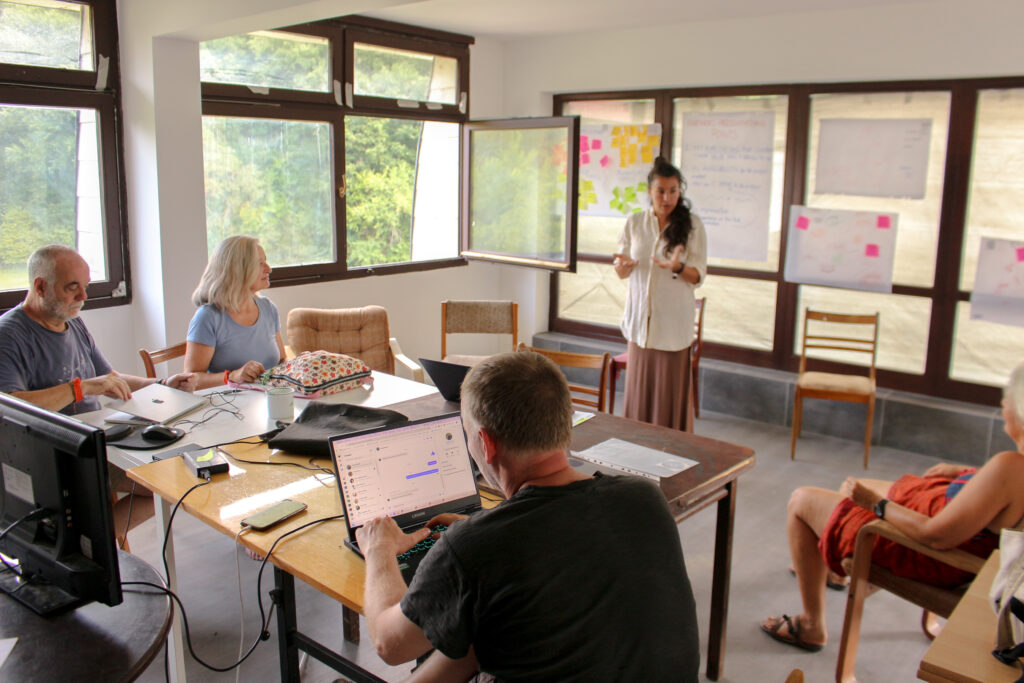
Photo taken by Viola Astolfi at European Ecovillage Gathering 2025
All these issues are not new, but rather the result of decades of profit-oriented technological and socioeconomic development. However, as of 2025, they have become quite difficult to ignore. On the one hand, the exponential rise of artificial intelligence, mostly owned by large corporations has dramatically modified many aspects of an increasing amount of jobs and has reshaped our relationship with the Internet in just over two years of existence. On the other hand, large social media emporiums have stopped concealing their true intentions as the political situation of the world becomes more unstable. The best example of this is the public support and funding of Elon Musk (owner of the Social Network X (formerly Twitter)) to Donald Trump’s campaign for the United States’ presidency. There are studies that indicate Musk would have tampered with X’s algorithm to boost his posts pro-Trump. Similarly, Mark Zuckerberg (Meta’s CEO) announced the ending of their fact-checking program, thus enabling the spread on misinformation, their algorithm always deciding what to promote, through Meta’s networks (Facebook, Instagram, Whatsapp).
There’s little doubt to me that our current digital reality looks quite grim, and the future looks even bleaker. Thankfully, there are alternatives to our current paradigm, and there are some people, also within the Ecovillage movement, that have been experimenting with them for years. While these alternatives still remain relatively mostly unkwown, even within the Ecovillage network, I believe the Ecovillages are the perfect places to experiment with, and promote a new digital culture for the wider world.
Just as they choose to produce their own food over depending on Supermarkets and foster local trade over big internationals, rethinking their digital activity falls clearly within Ecovillages’ ethos too. This involves various elements:
- Practicing Digital Degrowth and Mindfulness: Ecovillages can consciously choose to reduce their digital footprint and foster a more intentional relationship with technology. This means embracing practices like “digital detox” to disconnect, establishing clear usage patterns that prioritize real-world connection, and making deliberate tool selections based on their community values rather than convenience or mainstream trends.
- Establishing Digital Infrastructure as a Community Resource: Rather than relying on external corporate services, Ecovillages can build and govern their digital infrastructure as a shared commons. This involves deploying open-source, self-hosted services for communication, collaboration, and data storage, ensuring local control and data sovereignty.
- Cultivating Digital Autonomy and Resilience: Ecovillages can actively work to free themselves from digital dependencies. This includes building skills in repair culture for devices and networks, ensuring the longevity of their technology. It also means prioritizing offline knowledge preservation methods to guarantee access to vital information even during internet outages, and fostering decentralized communication systems that resist single points of failure.
- Fostering Digital Democracy and Governance: Ecovillages can extend their established practices of participatory decision-making into the digital realm. This involves leveraging transparent decision-making tools and platforms that enable community-wide (or network-wide) input and agreement on digital policies, and collectively governing their digital spaces to ensure technology truly serves the community’s needs and values.
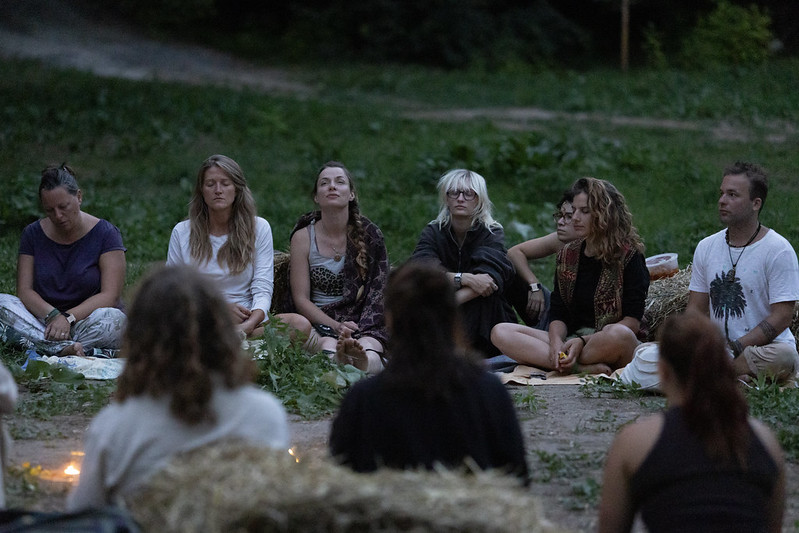
Photo taken by Sofija Stojanović at the European Ecovillage Gathering 2025
Our digital actions shape the culture we decide to foster. The implications of our choices extend far beyond the screens of our devices. Whether you are an ecovillager or not, you too can become a part of this new paradigm. As anthropologist Margaret Mead wisely observed: “Never doubt that a small group of thoughtful, committed citizens can change the world; indeed, it’s the only thing that ever has.“
In subsequent articles, we’ll dig deeper into some of the greatest challenges related to digital culture we face as a society, and we will explore the alternatives in more detail.
